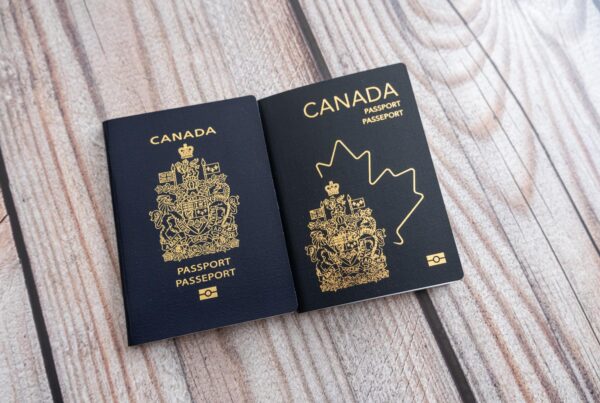Choosing the right sponsor for your Canadian immigration application can feel like a big decision, can’t it? It’s not just about ticking off boxes or meeting basic requirements; it’s about understanding who qualifies and why they’re the best fit to support your application. Some people might assume that any family member can sponsor, but the truth is more nuanced. Whether you’re dealing with spousal sponsorship or thinking of sponsoring parents, this guide will help you uncover some of the finer details.
Understanding Family Sponsorship Rules
The Canadian government has specific rules when it comes to family sponsorship. Not everyone in your family can sponsor you, and there are a lot of restrictions to keep in mind. Only certain relationships qualify, like spouses, common-law partners, parents, grandparents, and dependent children. These relationships need to be legally recognized by Canadian immigration authorities. For instance, a marriage outside of Canada must be valid in the country where it occurred, and your sponsor must be a Canadian citizen or a permanent resident.
It’s also worth noting that even if someone qualifies based on their relationship, they must meet other criteria, too. Sponsors need to be over 18 years old and can’t be receiving social assistance (with some exceptions). This can often be a stumbling block for many hopeful applicants. Understanding these sponsorship rules in detail can save you from setbacks.
The Role of a Spouse in Immigration Sponsorship
Spousal sponsorship remains one of the most common paths for family immigration in Canada. A Canadian citizen or permanent resident can sponsor their spouse or common-law partner for immigration. But it’s not as simple as just filling out paperwork together. The sponsor has to prove the authenticity of the relationship, meaning that immigration authorities will scrutinize details about your life together. Any sign of a marriage of convenience or lack of evidence can put the application at risk.
Proof might include things like joint bank accounts, leases, or even personal photos. Don’t assume that a long-term marriage automatically guarantees acceptance—immigration officers need to see genuine intent and shared life commitments. If you’re pursuing spousal sponsorship, working closely with an immigration lawyer can help you gather the best documentation.
How a Canadian Permanent Resident Can Be a Sponsor
Being a Canadian permanent resident opens the door to sponsoring a family member for immigration. However, there are a few important factors to keep in mind. First and foremost, the sponsor must reside in Canada when the sponsorship application is submitted. This means that permanent residents living abroad temporarily may need to return before applying.
Moreover, permanent residents must also meet the financial requirements to support the family member they are sponsoring. This usually means proving that they can financially provide for the sponsored person for a set period, ensuring they won’t need government assistance. For permanent residents looking to sponsor family members, it’s essential to plan ahead and understand these financial responsibilities before jumping in.
Sponsorship Eligibility for Parents and Grandparents
Many people wish to bring their parents or grandparents to Canada, but this type of sponsorship can be tricky. Unlike spousal sponsorship, which is available year-round, the Parent and Grandparent Sponsorship Program opens for a limited time, and applicants need to submit an interest to sponsor form before being invited to apply.
To be eligible, sponsors must meet specific income thresholds, which are usually higher than those for spousal sponsorship. The government wants to ensure that parents and grandparents won’t need public financial support, so your sponsor needs to prove that they can cover their living expenses for at least 20 years. For this reason, sponsoring parents or grandparents often involves a lot of paperwork and financial planning.
Common Mistakes When Choosing a Sponsor
Choosing the wrong sponsor can delay or even derail an immigration application. One common mistake is assuming that any family member who is a Canadian citizen or permanent resident can sponsor. This is not true. For instance, siblings and cousins are not eligible to sponsor unless they fall under specific circumstances, such as having no other eligible family in Canada.
Another pitfall is not paying attention to the sponsor’s financial status. Sponsors must meet income requirements, and those facing financial challenges might not qualify. Lastly, not providing enough evidence to support the sponsor’s eligibility can be a problem. Always double-check that your sponsor can meet the financial and legal obligations before applying.
How a Canadian Immigration Lawyer Can Help with Sponsorship
Sponsorship applications can be overwhelming, and missing even one detail can lead to a refusal. That’s where a Canadian immigration lawyer can be invaluable. We can guide you through the process, ensuring all documents are in order, and that you meet all the sponsorship eligibility requirements.
An immigration lawyer can also help you prepare for any potential challenges or unexpected questions from immigration authorities. By having a professional involved, you can avoid common pitfalls like submitting incomplete applications or failing to meet specific requirements. For anyone unsure of the process, seeking legal advice can provide peace of mind.
Financial Requirements for Immigration Sponsorship
Financial stability is a key requirement for anyone looking to sponsor a family member for Canadian immigration. This ensures that the sponsored individual will not require social assistance after arriving in Canada. The exact financial requirements vary depending on the type of sponsorship, but sponsors usually need to provide proof of income for a set number of years.
For spousal sponsorship, the financial requirements are generally lower compared to sponsoring parents or grandparents, but sponsors still need to show they can provide basic necessities like food, housing, and healthcare. If you’re sponsoring parents or grandparents, the income threshold is higher, reflecting the need for long-term financial support.
The Difference Between Spousal Sponsorship and Other Sponsorships
Spousal sponsorship differs from other types of sponsorship in that it allows for faster processing times and fewer financial requirements. Spouses are considered immediate family, meaning they are prioritized for immigration processing. In contrast, sponsoring parents or grandparents involves more strict income requirements and longer waiting periods.
With spousal sponsorship, the main focus is on proving the legitimacy of the relationship, whereas other sponsorship types, like parents and grandparents, emphasize financial responsibility. If you’re unsure which type of sponsorship best suits your situation, consulting a Canadian immigration lawyer is always a wise step.
Take the Stress Out of Immigration Sponsorship with Joshua Slayen
Immigration sponsorship can feel overwhelming, especially with all the rules, paperwork, and responsibilities. Whether you’re pursuing spousal sponsorship or bringing family members to Canada, having the right guidance is crucial for success. Joshua Slayen, a seasoned Canadian immigration lawyer, has helped countless individuals navigate the complexities of immigration sponsorship. Don’t risk delays or mistakes—get the expert help you need. Contact us today to start your journey toward a smoother immigration experience.









